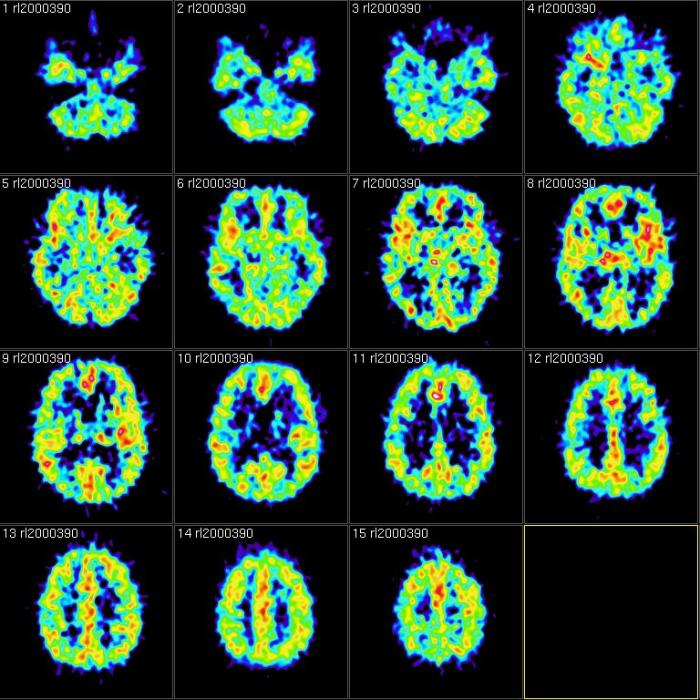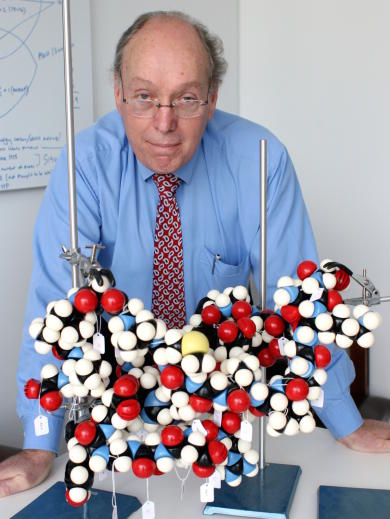New study aims to slow Alzheimer's march
Wednesday, 13 July, 2016
The world’s largest international drug trial aimed at delaying the symptoms of Alzheimer’s disease in its earliest stages is underway at the University of Melbourne.
Hundreds of healthy participants aged 65-85 have already been recruited to the Anti-Amyloid Treatment in Asymptomatic Alzheimer’s Disease study (the A4 study), with the results expected by 2020.
Of these, 100 will join a groundbreaking drug trial with the aim to slow down or even halt the progression of this debilitating illness. Recruitment and screening is still underway.
Alzheimer’s disease affects up to 90 per cent of all people with dementia worldwide. Three in ten people over 85 have dementia and there is currently no cure.
Researchers are interested in a protein called ‘amyloid’, which can build up in the brain and cause memory loss associated with Alzheimer’s disease.
One in three people aged 70-85 have a buildup of amyloid in their brains. Scientists are only beginning to understand which of these people will go on to develop cognitive impairment within five years.
The team at the University of Melbourne and the Florey Institute of Neuroscience and Mental Health will examine Positron Emission Tomography (PET) brain scans of the A4 study participants for a build up of these amyloid plaques.
Participants who show high levels of amyloid receive a monthly dose of a promising new anti-amyloid drug, or a placebo. The drug can slow the accumulation of the protein and can even clear it from the brain, which researchers hope, will ultimately slow or even stop the progression of the disease.
MONTHLY INFUSIONS
Melbourne resident Jan Kleinig, 77, was one of the first participants to join the study.
“My mum had Alzheimer’s and I’ve seen the terrible things it does to a person. Even though they’re still alive, you watch them disappear until you’ve completely lost the person that you know,” she says.
Her brain scan revealed high levels of beta-amyloid in her brain. And although it was troubling news, she says getting involved in the study helped her to feel more in control of her fate.
“Of course we all hope that it won’t be so, but I do have the amyloid in my head and researchers need people like me to find out whether this drug works.”

A positron emission tomography (PET) scan. All eligible A4 study participants have their brain scanned to detect for early signs of Alzheimer’s disease. Picture: Reigh LeBlanc/FlickrMs Kleinig has been receiving monthly infusions at her local health centre. The doctors measure her weight and her general health status.
She doesn’t know if she’s getting a placebo or the drug but so far, she’s had no side effects at all.
Every few months, a researcher visits her home to administer memory tests in order to track her progress over time.
“It may or may not help me, but there are so many people living with this terrible disease if this drug gives them a chance at five more years without it, then it’s worth doing,” she says.
FUNDING BOOST

Laureate Professor Colin Masters is leading the study.The A4 study, which has been recruiting since 2015, has recently received a funding boost, thanks to a major donation from the Yulgibar Foundation.
Laureate Professor Colin Masters, who is leading the study, says the Melbourne cohort is part of a large international effort to fight the progression of Alzheimer’s.
He says it’s unusual for a study to target the disease before symptoms appear.
“This is the first attempt at stopping the disease before it starts and before it progresses to full blown dementia,” Professor Masters says.
“Melbourne is the world’s largest single site for this study, which is funded with public-private partnerships between philanthropic donors, academic institutions, government agencies and the pharmaceutical industry.
“We are halfway through screening and need to screen another 400 participants.
“The people who get involved have a chance to be part of fundamentally important research and some will receive free treatment.” He says researchers are optimistic they will see good results.
To find out more, or to enroll in the study, phone 1800 443 253 or www.florey.edu.au
Banner image: Ars Electronica /Flickr
Incontinence management innovations for healthcare facilities
Incontinence management is rapidly improving courtesy of new technologies and compassionate...
Remote laundries target preventable disease in NT communities
A new community laundry has launched in Borroloola, part of a program seeking to curb preventable...
Eye care partnership looks to support First Nations optometrists
A new scholarship initiative will support Aboriginal and/or Torres Strait Islander optometrists...


![[New Zealand] Transform from Security Awareness to a Security Culture: A Vital Shift for SMB Healthcare — Webinar](https://d1v1e13ebw3o15.cloudfront.net/data/89856/wfmedia_thumb/..jpg)
![[Australia] Transform from Security Awareness to a Security Culture: A Vital Shift for SMB Healthcare — Webinar](https://d1v1e13ebw3o15.cloudfront.net/data/89855/wfmedia_thumb/..jpg)




